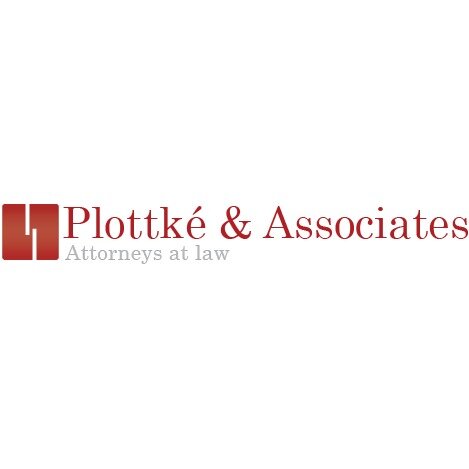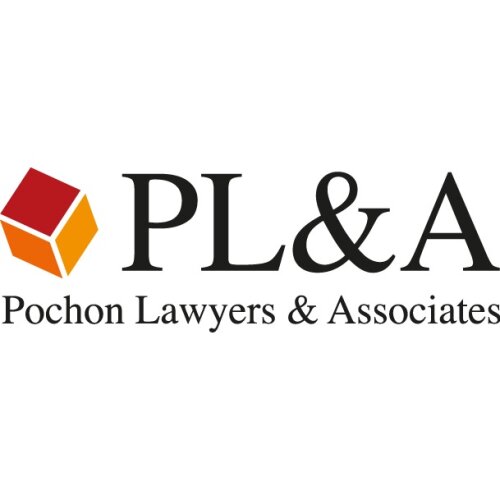Best Environmental Law & Compliance Lawyers in Luxembourg
Share your needs with us, get contacted by law firms.
Free. Takes 2 min.
Or refine your search by selecting a city:
List of the best lawyers in Luxembourg
About Environment Law in Luxembourg
Environment law in Luxembourg aims to protect natural resources, ensure sustainable development, and safeguard public health by regulating human activities that may cause environmental harm. The country is known for its commitment to high environmental standards, integrating EU directives into national legislation. Luxembourg's government actively promotes green policies, sustainable waste management, pollution control, and conservation efforts. Engaging in proactive environmental protection policies, Luxembourg seeks to balance economic growth with ecological preservation.
Why You May Need a Lawyer
Individuals and organizations often seek legal advice on environmental matters for several reasons:
- Dealing with regulatory compliance, especially for businesses undertaking activities that impact the environment, such as construction or manufacturing.
- Facing allegations of environmental law violations, which can involve complex legal processes and significant penalties.
- Engaging in land development projects that require environmental impact assessments and permits.
- Addressing disputes regarding land use, conservation areas, or pollution between individuals, companies, or governmental bodies.
- Pursuing or defending against litigation involving environmental damages or liability claims.
Local Laws Overview
Luxembourg's environmental legislation encompasses various laws and regulations designed to manage and protect the environment:
- The Environmental Protection Act provides the framework for ensuring environmental protection and sustainable development.
- The Water Act regulates the use and protection of water resources, addressing quality, management, and pollution control.
- The Waste Management Act governs the collection, transport, and disposal of waste, promoting recycling and reduction of waste production.
- The Nature Protection Act focuses on conserving biodiversity, preserving habitats, and managing natural resources responsibly.
- The Air Quality Act sets standards for air pollution control and monitoring to protect public health and the environment.
Frequently Asked Questions
What is the role of environmental impact assessments in Luxembourg?
Environmental impact assessments (EIAs) are crucial for evaluating potential environmental effects of proposed projects, ensuring that any significant negative impacts are addressed before project approval.
How does Luxembourg handle waste management?
Luxembourg encourages recycling and the reduction of waste through comprehensive waste management policies. The government provides guidelines for proper waste collection, treatment, and disposal.
Are there incentives for businesses to adopt eco-friendly practices?
Yes, Luxembourg offers tax incentives, grants, and subsidies to support businesses investing in sustainable practices, renewable energy, and eco-innovation.
Can individuals participate in environmental decision-making?
Citizens can engage in environmental decision-making through public consultations and participation processes during the development of certain policies and projects.
What are the penalties for violating environmental laws in Luxembourg?
Penalties for non-compliance can include fines, remediation orders, and, in severe cases, imprisonment. Businesses may also face civil liabilities and reputational damage.
How does Luxembourg protect its biodiversity?
Luxembourg implements conservation measures, such as designating protected areas, managing wildlife habitats, and supporting biodiversity initiatives and research.
What is Luxembourg doing to combat air pollution?
The country enforces strict air quality standards, promotes public transportation, and supports the transition to cleaner energy sources to reduce emissions and combat air pollution.
How can residents contribute to environmental protection?
Residents can engage in sustainable practices, participate in community recycling programs, and support conservation efforts through volunteering and awareness activities.
What permits are required for environmental projects?
Environmental projects typically require permits related to land use, water rights, emissions, and waste management to ensure compliance with local and EU regulations.
Is cross-border environmental cooperation a priority for Luxembourg?
Yes, Luxembourg collaborates with neighboring countries and complies with EU environmental directives to address transboundary environmental issues effectively.
Additional Resources
Several resources and organizations provide support and information on environmental legal matters in Luxembourg:
- The Ministry of the Environment, Climate and Sustainable Development offers updates and guidance on relevant policies and requirements.
- The Luxembourg Institute of Science and Technology conducts research and provides insights into environmental science and policy implications.
- Luxembourg's Environmental Protection Agency is responsible for enforcing environmental laws and offering public resources.
- NGOs like natur&ëmwelt advocate for environmental conservation and offer opportunities for public involvement.
Next Steps
If you need legal assistance, consider the following steps:
- Assess your specific needs and the scope of your environmental concerns.
- Research and select a lawyer with expertise in environmental law.
- Prepare detailed documentation of your issue, including any communications with regulatory authorities.
- Schedule a consultation to discuss your case, potential outcomes, and strategies for the best legal approach.
Having knowledgeable legal support can help navigate the complexities of environmental laws and ensure that you or your organization comply with all relevant regulations.
Lawzana helps you find the best lawyers and law firms in Luxembourg through a curated and pre-screened list of qualified legal professionals. Our platform offers rankings and detailed profiles of attorneys and law firms, allowing you to compare based on practice areas, including Environmental Law & Compliance, experience, and client feedback.
Each profile includes a description of the firm's areas of practice, client reviews, team members and partners, year of establishment, spoken languages, office locations, contact information, social media presence, and any published articles or resources. Most firms on our platform speak English and are experienced in both local and international legal matters.
Get a quote from top-rated law firms in Luxembourg — quickly, securely, and without unnecessary hassle.
Disclaimer:
The information provided on this page is for general informational purposes only and does not constitute legal advice. While we strive to ensure the accuracy and relevance of the content, legal information may change over time, and interpretations of the law can vary. You should always consult with a qualified legal professional for advice specific to your situation.
We disclaim all liability for actions taken or not taken based on the content of this page. If you believe any information is incorrect or outdated, please contact us, and we will review and update it where appropriate.
Browse environmental law & compliance law firms by city in Luxembourg
Refine your search by selecting a city.
















